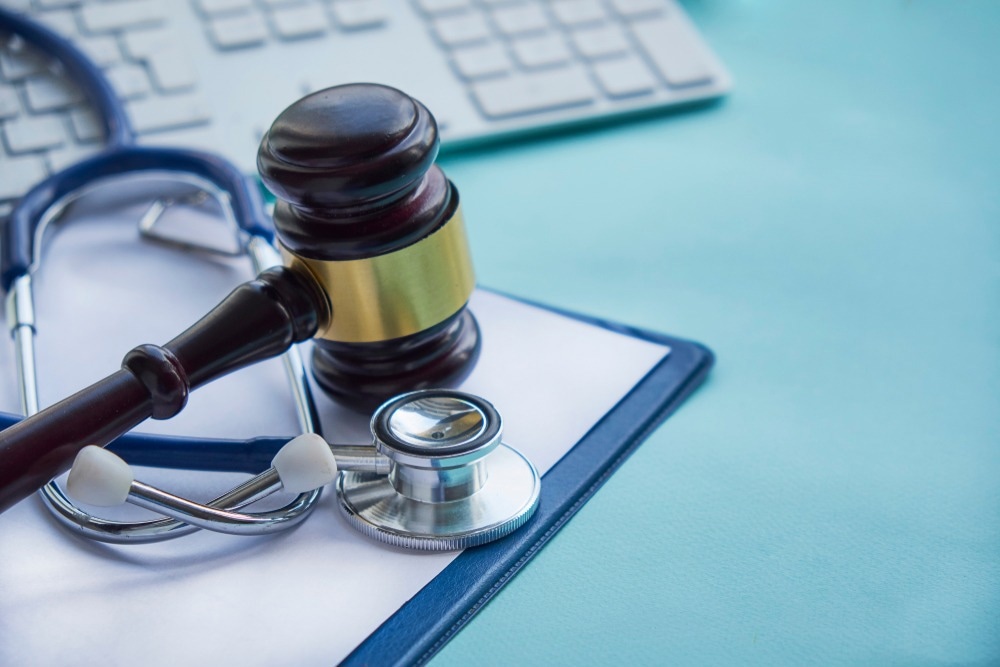How are health and human rights linked?
Who is most at risk of health rights violations?
References
Further reading
The human right to health is set out in various international agreements. It is inseparable from other rights related to the right to attain a sufficient life, such as the right to access water, food, shelter, work, education, and community, each of which could directly harm an individual’s health if violated. Article 25 of the United Nations Declaration of Human Rights, completed in 1948, sets out international human rights related to health, though this document was intended as a moral guide rather than law, and many facets did not come into effect as law until years later.

Image Credit: Yavdat/Shutterstock.com
How are health and human rights linked?
Importantly, in the year 2000, the United Nations' Committee on Economic, Social and Cultural Rights commented that the right to health is not the same as the right to be healthy, indicating that while every individual should be provided with the highest attainable standard of health, it may not necessarily be feasible to guarantee relief or cure, either given the impossibility of the task or lack of resources available to the state. In other words, it is not the responsibility of the state to ensure that every citizen is healthy, but every effort must be made to allow citizens to be as healthy as realistically possible.
Human rights can be separated into freedoms and entitlements, which can be thought of as one’s own autonomy and the responsibilities of the state to its citizens, respectively. Freedoms are rights over one’s own body, such as sexual and reproductive rights, and also the freedom from interference in the form of unwanted medical procedures, experimentation, torture, or other personal encroachment. Entitlements are rights given to all humans equally, which with regards to health concerns access to healthcare, the expectation of reasonable and fair treatment, and, importantly the distribution of healthcare in a manner that does not exclude or inhibit those of any particular demographic from obtaining aid.
In practice, this effectively means that a nation or organization should make available resources that allow human rights related to health to be fulfilled and prevent the deterioration of existing access. Therefore, the protection of these rights is broad and could include simply the allocation of resources to the new well digging in locations with poor water access, extending to preventing the new implementation of mandatory fees for basic education, as this would be considered a deterioration in accessibility.
Who is most at risk of health rights violations?
The world’s most devastating diseases disproportionately affect the poorest humans, both within single nations and on a global scale. The distribution of the world’s three most communicable diseases exemplifies this, as malaria, HIV/AIDS, and tuberculosis affect the poorest nations most greatly, in many cases compounding existing gender, age, race, or sexual orientation inequalities in these regions.
In contrast, most non-communicable diseases greatly affect wealthier nations, largely owing to better healthcare access allowing longer life and the greater incidence of mental health disorders, cancers, and other late-in-life diseases. However, even where non-communicable disease frequency may be higher in developed nations, inequality in access to diagnosis and treatment remains, with significantly higher mortality rates expressed.
In many settings, seeking treatment may put an individual at risk of violating their human rights. For example, those with HIV, sex workers, drug users, homosexual or transgender, and indigenous populations have each historically received either ostracization as a mild response or more serious human rights violations such as forced sterilization or enrollment in re-education centers by the medical community.

Image Credit: REDPIXEL.PL/Shutterstock.com
Among many communities, mistrust of medical intuitions still lingers strongly owing to past grievances and has, in some cases, made adopting genuinely beneficial medicines and procedures hard-fought. For example, acceptance of the COVID-19 vaccine was notably lower and slower to come around amongst ethnic minority communities in the USA, UK, and other ethnically diverse nations.
Individuals suffering from mental health disorders have received notoriously poor treatment in the care of various health administrations historically, in many cases involving the violation of human rights, both freedoms, where bodily autonomy is violated, and entitlements, where the organization is not providing the best possible healthcare as defined in the United Nations Declaration of Human Rights and other associated documents.
Human rights-based approaches to treating those with mental disorders are increasingly being adopted into the foundational framework of healthcare services, which is particularly important for patients unable to express themselves and exercise their rights.
Health is a human right
The human rights of healthcare providers may also be violated by the organizations within which they are employed or by patients if forced to perform procedures that they are morally against or know are not in the patient's best interests, if ordered to treat particular demographic groups with preference or denial, or if made to perform medical procedures for the purposes of torture or punishment.
Care providers have the right to abstain from performing medical procedures demanded by patients or their employers, and in most countries, this right is protected by law. However, in many locations worldwide, health workers are frequently under forced employment or are threatened with career loss or personal harm if refusing to cooperate. War-torn regions are often the direct military target of unscrupulous forces wishing to weaken the enemies' resolve.
References
- World Health Organization (2017). Human Rights and Health. [Accessed 11/11/2022] https://www.who.int/news-room/fact-sheets/detail/human-rights-and-health
- Minaya, C., Mckay, D., Benton, H., Blanc, J., & Seixas, A. A.. (2022). Medical Mistrust, COVID-19 Stress, and Intent to Vaccinate in Racial–Ethnic Minorities. Behavioral Sciences, 12(6), 186. https://doi.org/10.3390/bs12060186
- Holt, E. (2012). Uzbekistan accused of forced sterilisation campaign. The Lancet. doi: https://doi.org/10.1016/S0140-6736(12)61050-2
[Furher reading: Global Health]
Last Updated: Dec 12, 2022